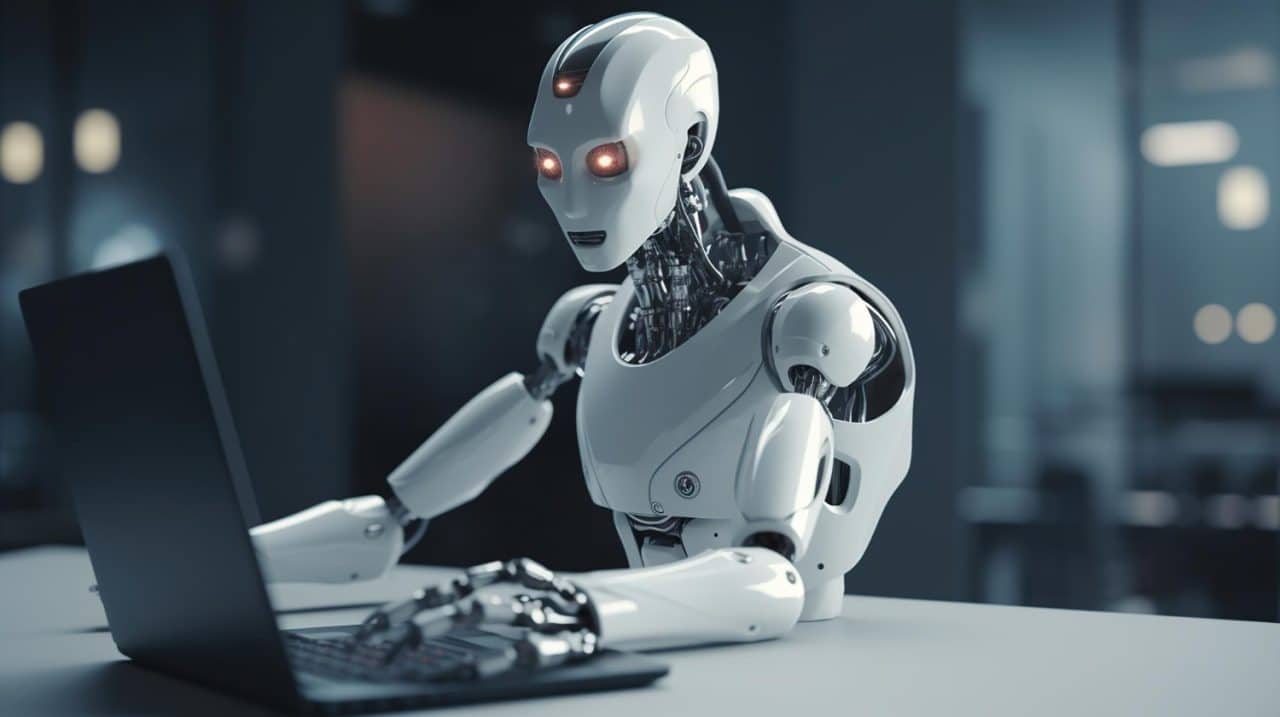Robotics and IT: Pioneering the Job Landscape of Tomorrow

As we stand on the brink of the Fourth Industrial Revolution, it’s clear that technology and, in particular, Robotics and Information Technology (IT), are poised to play a pivotal role in shaping our future. The rapid advancements in these fields are not only revolutionizing industries but also transforming job roles and creating new career paths.
The Intersection of IT and Robotics
The convergence of IT and Robotics is leading to the emergence of new fields such as Robotic Process Automation (RPA) and Internet of Things (IoT). RPA involves the use of software robots or “bots” to automate routine tasks, thereby improving efficiency and accuracy. These bots can mimic human actions and automate repetitive tasks across multiple applications, allowing employees to focus on more complex and strategic tasks. On the other hand, IoT involves the interconnection of devices and systems, enabling them to collect, exchange, and analyze data, often in real-time. This network of interconnected devices can range from everyday household items to sophisticated industrial tools. With the data collected, we can derive meaningful insights and optimize processes, ultimately leading to improved efficiencies and cost savings.
The Future of Jobs in IT and Robotics
The IT sector has always been at the forefront of innovation, and with the advent of Robotics, it’s set to drive unprecedented changes in the job market. Here are some of the roles that are expected to be in high demand:
1. Robotics Engineer
These professionals are the backbone of the robotics industry. They design the robots that we see and use in various industries. Their work involves a deep understanding of both software and hardware design. They need to be proficient in programming languages, mechanical and electrical engineering concepts, and have a creative mindset to solve complex problems. They are often involved in the entire lifecycle of a robot – from conceptualization and design to testing and implementation. As robotics continues to advance, the demand for skilled robotics engineers is expected to grow.
2. Data Analysts
In the age of big data, the role of data analysts is becoming increasingly important. With the rise of robotics and AI, machines are generating vast amounts of data. These analysts are responsible for interpreting and analyzing this data to extract meaningful insights. They use statistical tools and techniques to understand patterns and trends in the data, which can inform strategic decisions. Their work can influence product development, business strategies, and even impact the direction of the company.
3. AI Specialist
AI Specialists are at the forefront of technological innovation. They develop and maintain AI systems that can work in tandem with robots, enhancing their capabilities. These professionals need a deep understanding of machine learning algorithms and the ability to apply these concepts to real-world problems. They work on creating intelligent systems that can learn from experience, recognize patterns, make decisions, and perform tasks that normally require human intelligence. As AI continues to evolve and become more sophisticated, the role of AI specialists will become increasingly crucial.
4. Cybersecurity Expert
With the increased reliance on digital technologies, the protection of sensitive information has become crucial. Cybersecurity experts are tasked with safeguarding information systems from potential threats. They stay ahead of cyber threats by keeping up-to-date with the latest cybersecurity trends and threats. They implement strategies to protect against data breaches, conduct security assessments, and develop policies and procedures to ensure the security of data.
5. Robotics Operator
Robotics Operators are responsible for the day-to-day operation and maintenance of robotic systems. They need to understand the mechanics of robots, be able to troubleshoot issues, and ensure that the robots are performing optimally. Their work involves monitoring the performance of the robots, diagnosing mechanical issues, and performing regular maintenance to ensure the robots are in good working condition. As more industries adopt robotics, the need for skilled robotics operators will increase.
The Impact of Robotics on Society
The impact of Robotics extends beyond the job market. It’s transforming various sectors, including healthcare, agriculture, and logistics, by automating tasks, improving efficiency, and reducing human error. In healthcare, robots can assist in surgeries, providing greater precision than humans. In agriculture, drones can monitor crop health and optimize water usage. In logistics, autonomous vehicles can streamline supply chain processes.
Moreover, it’s paving the way for innovations such as autonomous vehicles and personal assistant robots, which are set to revolutionize our daily lives. Autonomous vehicles can potentially reduce traffic accidents caused by human error, and personal assistant robots can help with daily tasks, providing support for the elderly or those with disabilities.
The influence of robotics on society is profound and far-reaching, promising to bring about significant changes in the way we live and work.
Conclusion
The future of IT and Robotics is undoubtedly exciting and holds immense potential. As these fields continue to evolve, they will create a plethora of opportunities for those willing to adapt and learn. Importantly, introducing children to robotics can spark their interest in STEM fields, equip them with the skills needed for the future, and open up a world of career possibilities. After all, the children of today will be the innovators of tomorrow, shaping a future where technology and human ingenuity work hand in hand.
FAQs
Robotics is introducing automation and efficiency into various IT processes, leading to the creation of new job roles and opportunities.
The scope of Robotics is vast and varied, with applications ranging from healthcare and manufacturing to space exploration and beyond.
Gaining a strong foundation in STEM subjects, learning programming languages, and getting hands-on experience with robotics projects can be beneficial.
Robotics, along with AI, IoT, and other technologies, is a key component of Industry 4.0, driving automation and data exchange in manufacturing and other industries.
While Robotics may automate certain jobs, it will also create new roles that we can’t even imagine today.

